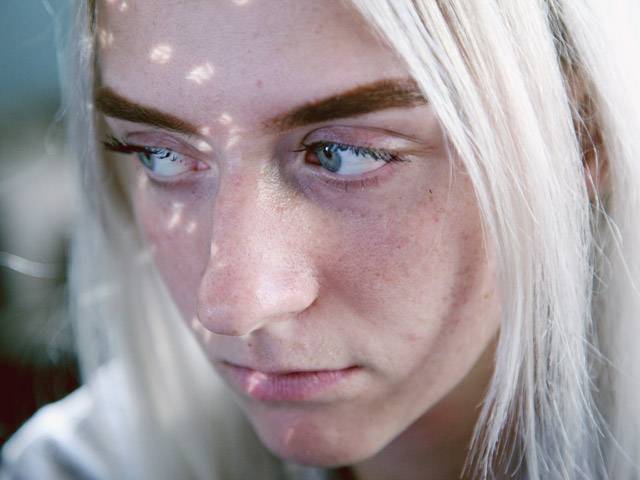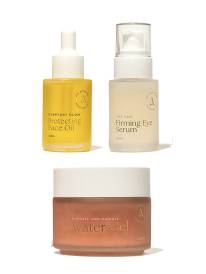The Genetics of Acne Interview

Large Study into the Genetics of Acne Could Pave the Way for New Treatments
Acne is one of the most common skin conditions globally, affecting more than 90 % of people worldwide. Acne has previously been thought to be caused by skin inflammation, however new research has identified several genetic regions that could be associated with the condition.
In one of the largest studies ever conducted into genetic risk factors that could influence acne, researchers have pinpointed 15 specific genetic locations that could be associated with severe acne, 12 of which have never been connected to the condition before! This new research suggests that hair follicle formation is a significant yet previously unknown risk factor for developing the condition.
Insight into the genetic factors can help the development of targeted and more effective treatments, which is good news for the 9 out of 10 people affected by acne!
Interview with Dr Adrian Lim
Dr Adrian Lim completed his Bachelor of Medicine and Surgery in 1988, followed by specialist training in dermatology.
Dr Lim became a Fellow of the Australasian College of Dermatologists (ACD) in 2005 and the Australasian College of Phlebology (ACP) in 2001. Dr Lim served as Dean of Education for the ACD between 2015 and 2018 and chaired the National Training Committee for the ACD between 2013 and 2015. Dr Lim is the current President of the ACP, appointed in 2018.
Dr Lim has extensive international dermatology research and experience, and is considered among Australia's leading dermatologists. He has published research and delivered many presentations both at home in Sydney, and further afield.
Dr Lim's is currently a Dermatology Staff Specialist at The Royal North Shore Hospital, Clinical Trials Director at Central Sydney Dermatology, and Consultant Dermatologist at uRepublic Cosmetic Dermatology & Veins.
Question: Can you tell us about the latest findings in acne?
Dr Adrian Lim: Up until recently, the root cause of acne has been poorly understood. But thanks to a new study involving almost 27,000 people, our understanding of the condition and its treatment is gaining ground. Researchers have identified 15 specific genetic variation more common among those with severe acne, 12 of which have never been associated with acne before.1 Importantly, many of these genetic variations influence hair growth and follicle formation, which could prove to be an important and new risk factor for acne. In most people, acne-prone hair follicles evolve into acne-resistant hair follicles during adolescence and early adulthood. This process does not however occur in those with persistent acne. Genes may help to explain why this is the case.2
Question: Does this mean acne is in our DNA?
Dr Adrian Lim: While no one single gene is associated with acne, the condition does run in families most (80 per cent) of the time.3 Research shows you are four-times more likely to have acne if a first degree relative has the condition.2
Question: How does this research pave the way for more effective acne treatments?
Dr Adrian Lim: The more we learn about the causes of acne, the better targeted our treatments will be, noting current treatments focus on reducing inflammation and bacterial infection.
If we can understand what causes acne, we can intervene earlier, and possibly reduce antibiotic use and acne scarring.
 Question: Can you talk us through the correlation of hair follicles faults and acne?
Question: Can you talk us through the correlation of hair follicles faults and acne? Dr Adrian Lim: Genetic variations may influence the structure, function and shape of hair follicles, making them more prone to bacteria build-up and inflammation, both known features of acne.1
Question: What's next for acne treatments?
Dr Adrian Lim: While it may take time for these new research findings to be reflected in acne treatments, identifying the genes responsible for acne will help to develop more targeted treatments. Development of an acne vaccine that boosts the body's defence against acne-contributing bacteria is now underway.4
Current treatments available for acne include:
• Chemical peels & Microdermabrasion – use either chemical exfoliants or suction combined with exfoliation to remove impurities and dead skin cells.5
• Oral medication – Isotretinoin capsules are the most effective current treatment for severe acne.7
• Photodynamic therapy – also known as blue light therapy, has antibacterial and anti-inflammatory effects.8,9
• Topical medication –vitamin A-derived creams, such as retinoids, which help to unclog skin pores.10
Importantly, The Australasian College of Dermatologists (ACD) is Australia's leading authority on dermatology. If you have moderate-to-severe acne, be sure to visit a dermatologist (a medical skin specialist) without delay.
To find a dermatologist near you, or to learn more, head to www.dermcoll.edu.au.
1. PETRIDIS C, et al. (2018). Genome-wide meta-analysis implicates mediators of hair follicle development and morphogenesis in risk for severe acne. Nature Communications.
2. GOULDEN V, MCGEOWN CH, & CUNLIFFE WJ. (1999). The familial risk of adult acne: a comparison between first-degree relatives of affected and unaffected individuals. The British Journal of Dermatology. 141, 297-300.
3. NAVARINI A.A., et al. (2014). Genome-wide association study identifies three novel susceptibility loci for severe Acne vulgaris. Nature Communications. 5.
4. WANG, Y., HATA, T. R., TONG, Y. L., KAO, M.-S., ZOUBOULIS, C. C., GALLO, R. L., & HUANG, C.-M. (2018). The Anti-Inflammatory Activities of Propionibacterium acnes CAMP Factor-Targeted Acne Vaccines. Journal of Investigative Dermatology. 138, 2355-2364.
5. American Acne Foundation. Microdermabrasion for acne. Available at: https://www.acnefoundation.org/microdermabrasion-for-acne/ [Last accessed Feb, 2019].
6. All about acne. Managing acne with antibiotics. Available at: https://www.acne.org.au/managing-acne-with-antibiotics [Last accessed Feb, 2019].
7. All about acne. Oral isotretinoin Available at: https://www.acne.org.au/isotretinoin [Last accessed Feb, 2019].
8. Australasian College of Dermatologists. Photodynamic therapy. Available at: https://www.dermcoll.edu.au/atoz/photodynamic-therapy/ [Last accessed Feb, 2019].
9. All about acne. Biophotonic therapy. Available at: https://www.acne.org.au/blue-light-therapy. [Last accessed Feb, 2019].
10. Australasian College of Dermatologists. Retinoids.
Available at: https://www.dermcoll.edu.au/atoz/retinoids/ [Last accessed Feb, 2019].
Interview by Brooke Hunter
MORE





